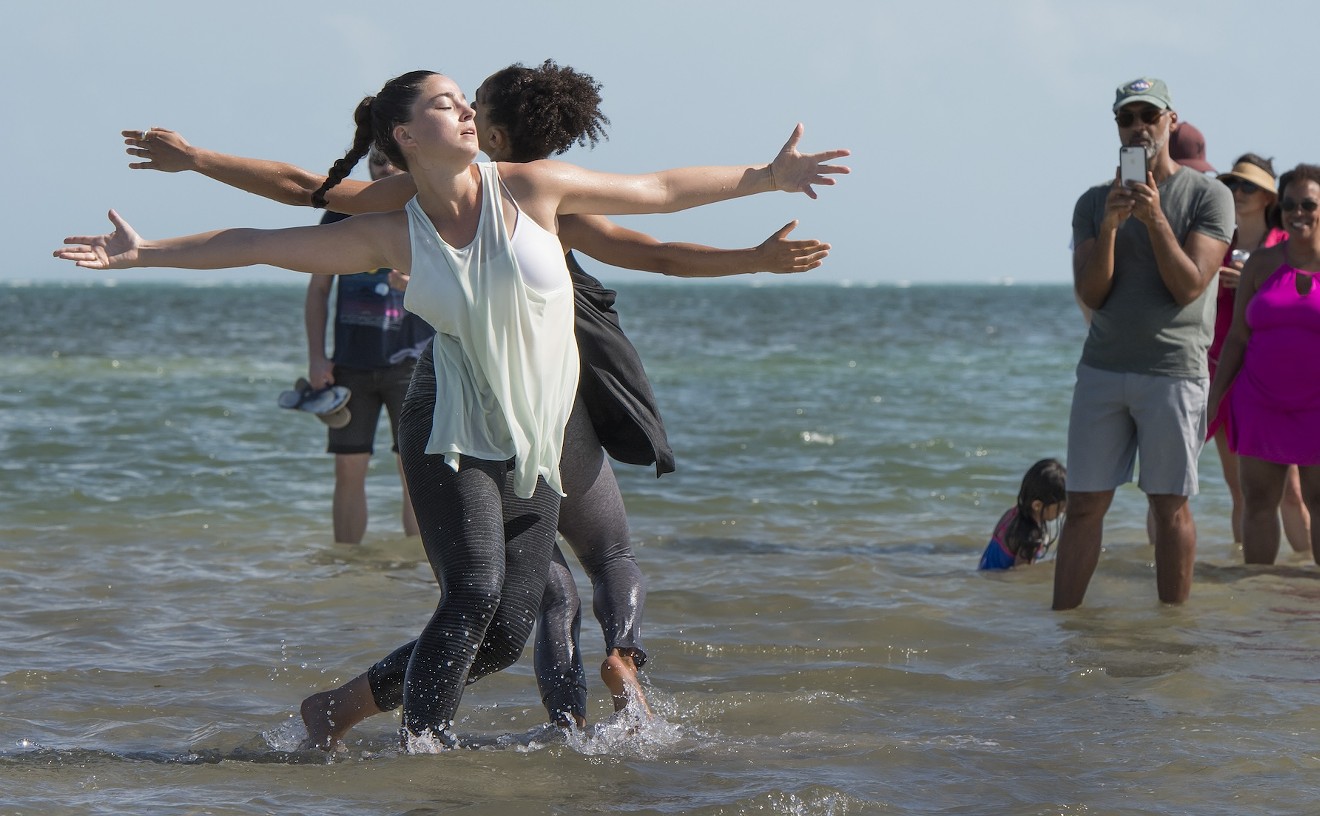When author Edwidge Danticat was two years old, her father, André, left Duvalier's Haiti and moved to New York City. Danticat remained in Bel Air with her uncle Joseph. Ten years later, she joined her father in Flatbush, Brooklyn. Danticat eventually became a writer and moved to Miami's Little Haiti to teach at the University of Miami. It was here that she learned her father was dying. Months later, Hurricane Jeanne hit Haiti. It was around this time that the United Nations force stormed his house in Bel Air, explains Danticat, and some of his neighbors thought he was working with the UN and threatened his life. He had to flee Haiti.
Danticat received a call that he had left the island. He was a cancer survivor who spoke with a voice box — he needed asylum. But upon arriving in Miami, he was immediately detained and sent to Krome Detention Center, despite the fact that he had a visa and an up-to-date passport.
"They asked him how long he would be staying, and he said he didn’t know," Danticat recalls. "His medication was taken away, and he was treated badly. He died five days later in Jackson Memorial Hospital's prison ward."
Danticat lost her father and uncle in 2004. It was the same year she learned she was pregnant.
This Thursday, she will appear in conversation with the lawyer who helped her fight Krome as part of the Big Read's closing-night panel. (The Big Read event is part of the Miami Book Fair organized by Miami-Dade College). Danticat, along with Americans for Immigrant Justice Executive Director Cheryl Little, will discuss her memoir, Brother, I'm Dying. The book chronicles her father's, her uncle Joseph's, and her own immigrant journeys from Haiti to the United States.
"We often forget that we are talking about human beings," Danticat says. "That’s what I want to stress with my book; that’s what I want to portray and show we are talking about human beings, about families, children.
"In a place like Miami, where we are often talking about mixed-status families — where you have U.S.-born children who might be terrified that one of their parents might be deported, and then parents who have legal status but children are in detention — it's about being human."
Danticat, herself a Haitian immigrant, sees her place between the birth of her daughters and the death of her parents. Her parents spent almost their whole lives in Haiti and died in New York. Her daughters were born in Miami.
"Haiti is in between; Haiti connects them. I feel like I’m in the middle. When your parents die, you feel like the roof is being raised over your head. You don’t have that top, less of the sense of being someone in between the sandwich, the generations. Now you're the older generation," she says. "Our parents had to reinvent themselves, they had to learn new languages, and we're the inheritors of that beauty and the burden of that."
Though Little was unable to liberate Joseph, their legal battle sparked an investigation into ICE, which gave them documents that helped in writing the memoir. Danticat has also become a powerful voice in the Haitian immigrant community.
The conversation will be about the book but will also touch on immigration issues and broader social issues.
Edwidge Danticat in Conversation With Cheryl Little, Esq.
6:30 p.m. Thursday, March 31, at the Little Haiti Cultural Center.
Correction: An earlier version of this story contained several errors, including reporting that Danticat's uncle Joseph had lost his home in Haiti during Hurricane Jeanne; that Joseph did not have proper visa papers when he was detained; and that Danticat herself was imprisoned for a time at Krome Detention Center. The story has been updated to reflect that Joseph fled Haiti because his neighbors believed he was cooperating with the U.N.; that Joseph had a valid visa and passport at the time; and that Danticat never spent time in Krome.
[
{
"name": "Air - MediumRectangle - Inline Content - Mobile Display Size",
"component": "19274298",
"insertPoint": "2",
"requiredCountToDisplay": "2"
},{
"name": "Editor Picks",
"component": "17482312",
"insertPoint": "4",
"requiredCountToDisplay": "1"
},{
"name": "Inline Links",
"component": "18711090",
"insertPoint": "8th",
"startingPoint": 8,
"requiredCountToDisplay": "7",
"maxInsertions": 25
},{
"name": "Air - MediumRectangle - Combo - Inline Content",
"component": "17482310",
"insertPoint": "8th",
"startingPoint": 8,
"requiredCountToDisplay": "7",
"maxInsertions": 25
},{
"name": "Inline Links",
"component": "18711090",
"insertPoint": "8th",
"startingPoint": 12,
"requiredCountToDisplay": "11",
"maxInsertions": 25
},{
"name": "Air - Leaderboard Tower - Combo - Inline Content",
"component": "17482313",
"insertPoint": "8th",
"startingPoint": 12,
"requiredCountToDisplay": "11",
"maxInsertions": 25
}
]











